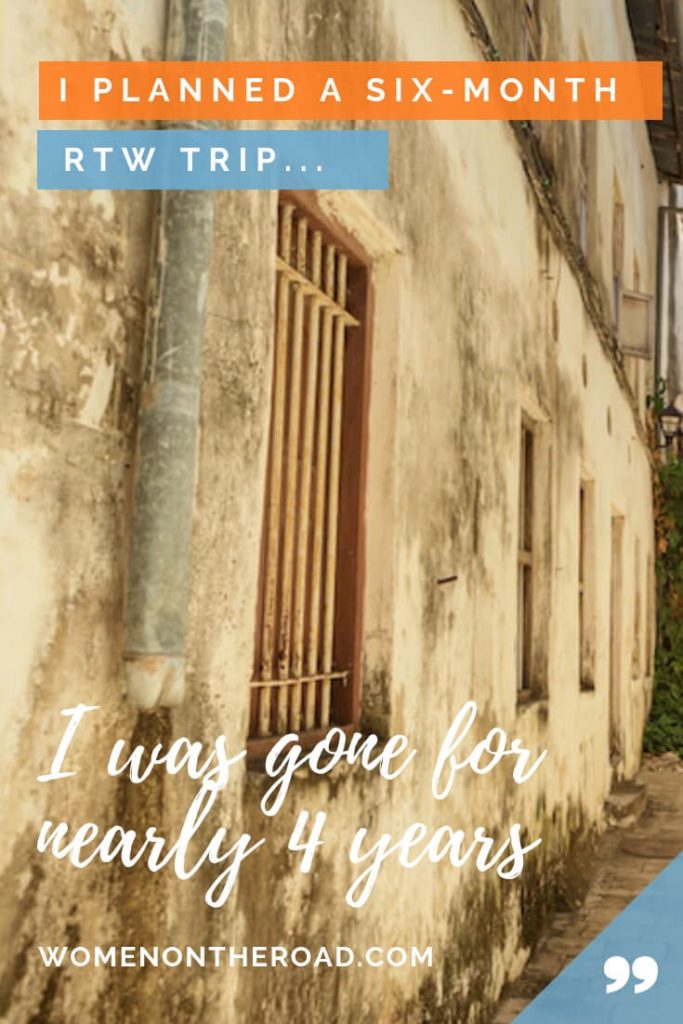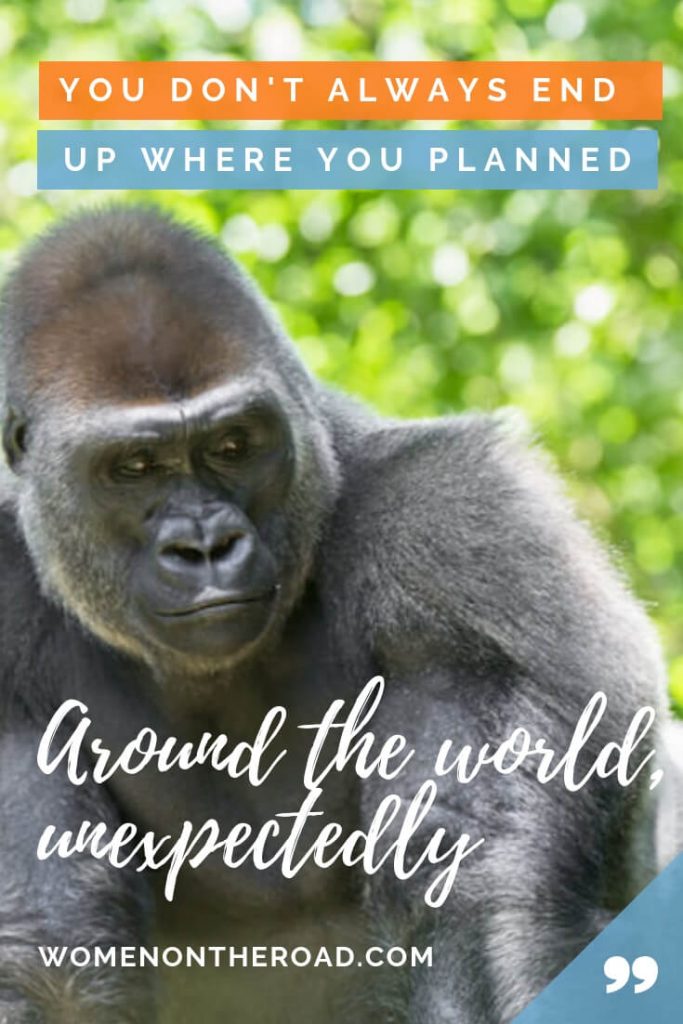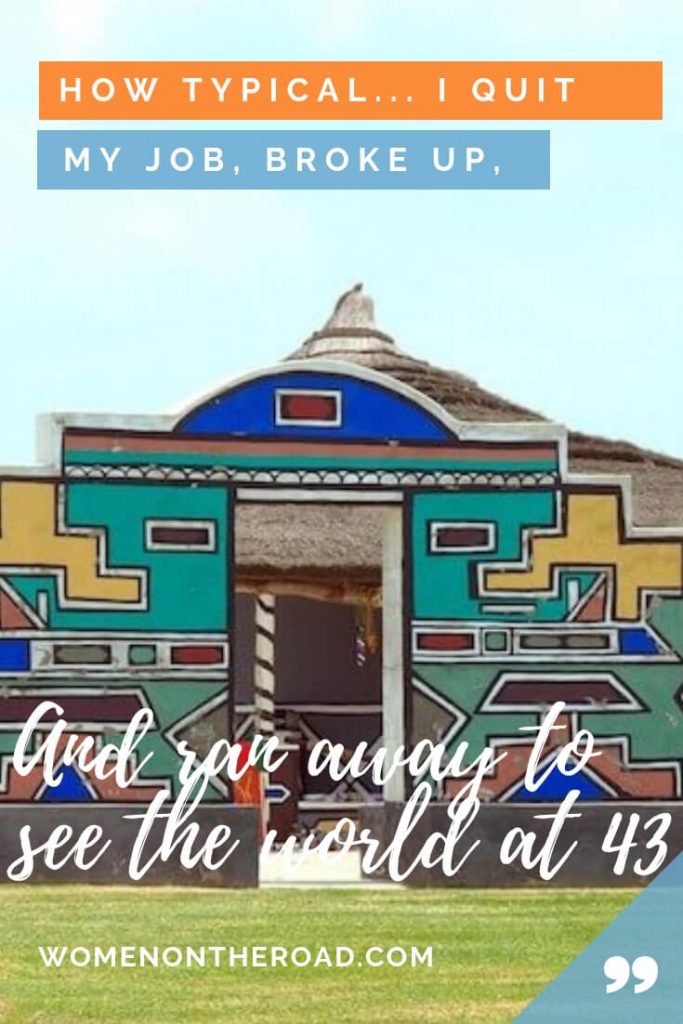You too can experience round the world travel!
Here’s the story of my own round the world travel adventure.
The one that was only supposed to last six months.
In fact, even that seemed a stretch. Everyone predicted I’d come home much sooner.
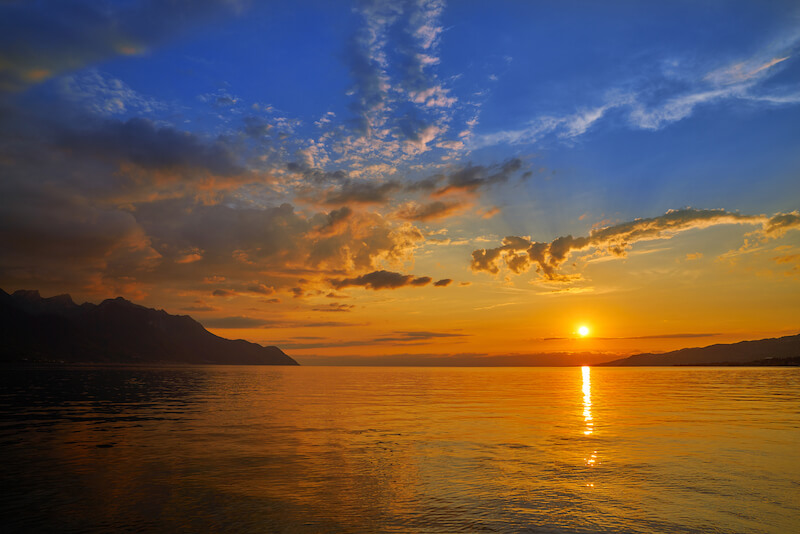
But once I left, I kept going. The more I traveled, the less I wanted to stop.
And so I carried on, to places that were never on my itinerary, encountering people I never thought I would meet, searching for things I didn’t know existed.
But I’m getting ahead of myself.
Below you’ll find a snapshot of my travels to unlikely and unusual places, at a time when solo round the world travel was still exceptional and communicating across the world still took a bit of effort.
How I got myself into this situation
The idea of ‘taking off’ insinuated itself in 1995. I remember the moment.
I was in my early forties, living a life that seemed ideal from the outside. I worked in Geneva for the United Nations, in an agreeable but unchallenging position. I was in a dead-end relationship, drifting rather than growing. I lived in Morges, a lovely medieval village on Lake Geneva, ate out a lot and had plenty of friends.
But I was restless, fueled by that unfathomable thing called wanderlust.
One day I was flying back to Europe from a business trip in southern Africa. As my plane rushed across the Sahara, I looked down and I had a vision, corny as it may sound. I imagined a redheaded backpacker, only she was trekking south, heading back the way I’d come.
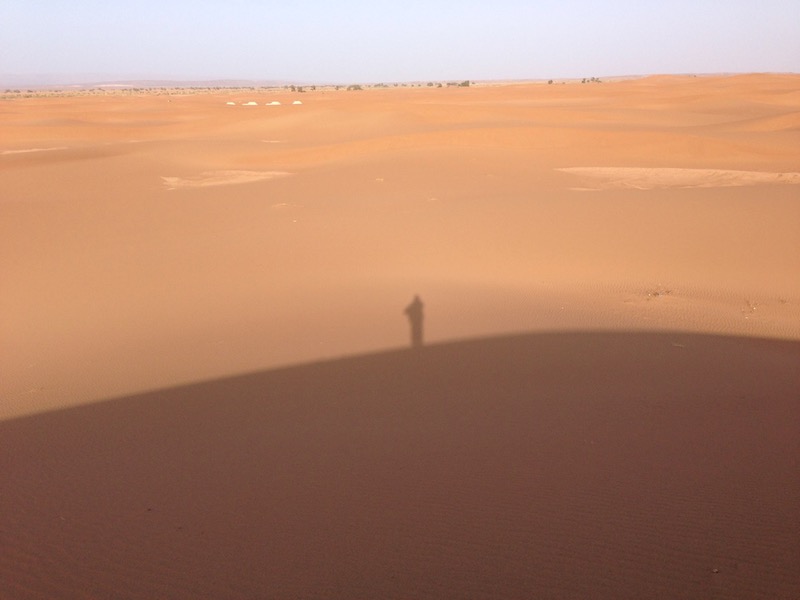
Once back home, I couldn’t get rid of that vision. It invaded me, unwilling to release me.
So I let it take over and started rethinking my future. I made lists (my go-to answer for absolutely everything) of what I might do to change my life.
After university, all my friends took off for a “gap year” to Asia or across Europe. I had graduated on a Saturday and dutifully reported to my first job the following Monday. Not much of a gap. And so that yearning had been unfulfilled.
But quitting a good job and everything else in my life wasn’t an easy decision. It took years, many lists, much soul-searching, and a LOT of downsizing to put money aside (in those days, making money online wasn’t really an option and the digital nomad had yet to be invented, so you needed the funds up front).
Before joining the UN, I had been a journalist and I decided to take the leap and become a freelancer. Surely a few years as an international bureaucrat couldn’t have wrecked my pen permanently, could it?
And I decided to go for it.
So where exactly would I go?
I had longed to return to Africa for longer than the requisite conference so I sat in front of my globe (I did still have one of those), closed my eyes, and pointed. My finger fell on Cape Town, South Africa (actually, it landed in the middle of the nearby ocean, but close enough).

I bought the Writers’ Market (I don’t even think it exists anymore) and made a list of all the magazines that might be interested in a story from that continent. I approached corporate publications by non-governmental organizations and the United Nations. I wrote to everyone I knew, and to everyone they knew, and to everyone who made the error of listing themselves on magazine and newspaper mastheads.
I began to get responses. Remember, this was in the mid-1990s and women didn’t often take off to Africa on their own, much less write about faraway lands, so there was some interest. Nor was the Internet really around yet – blogging was in the future, solo travel wasn’t a thing, and there was far less competition than there is today.
I bought an early model laptop computer – they were just coming on the market and would create a furore wherever I went.
I added a strange-looking modem you had to strap around a phone to connect with email, a miracle of modernity! You needed special access phone numbers and your chances of connecting were slim. It might take me two days to send an email. There was always a fax, which cost $1 a page. When some publications were paying as little as $20 a story, that wasn’t realistic.
I picked up a number of useful statistical publications about population and poverty and human rights. These publications held precious data about people, places, health, occupations, education – everything you could find online in a minute today, but not then. For many months I would lug them around Africa in a straw basket made for me by a kind woman in a South African village.
Preparing for six months of round the world travel
It took me a year to get ready to leave. (Here’s the checklist I developed as a result.)
By July 1996 I’d canceled my lease, broken up with my partner, quit my job, and fended off concerned friends and family who collectively agreed I was insane (quitting everything to take off solo when pushing 50 wasn’t quite fashionable yet).
I bought a one-way ticket to Cape Town, with the intention of spending six months traveling northward along Africa as far as I could and then flying home to Geneva.
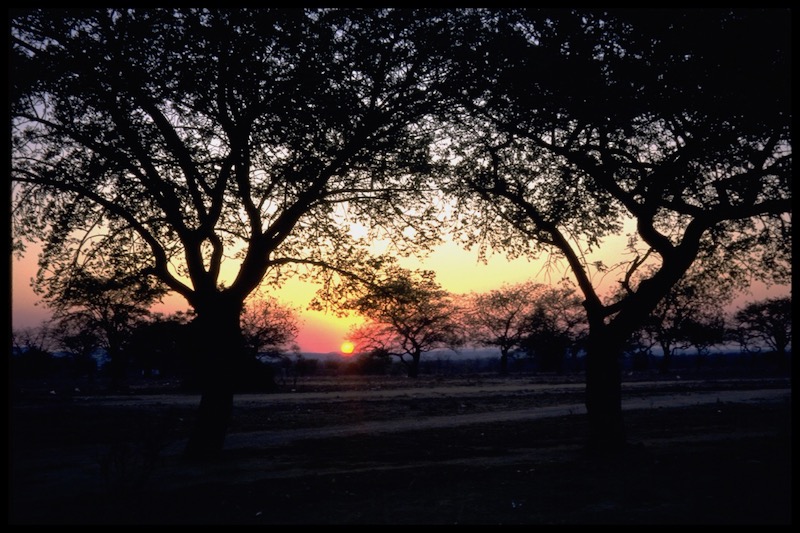
I was careless and overlooked the inverted seasons in the Southern Hemisphere, landing in July wearing shorts and a T-shirt, watching my breath curl up into the crystal-cold winter air. My first inglorious stop on this trip would be a sports shop to buy long underwear.
I made contact with the people whose names I had brought along, and slowly, slowly, I started writing articles. Those first few efforts were a bit rusty (I hadn’t worked as a journalist for years) but writing is like a muscle that strengthens with practice so I got better, worked hard, and slept little.
Soon I was a regular freelancer, and eventually, some way down the road, I would become a newspaper foreign correspondent in Africa.

It was the road trip of my life.
I felt my way tentatively across South Africa on the hop-on hop-off Baz Bus: Nelson Mandela hadn’t been in power long, and the country vibrated with hope and energy.
I rode the rickety rails from Pretoria to Maputo, the only European on a train of Mozambican market traders, and spent a day of travel sitting on bales of second-hand clothing.
I visited overcrowded refugee camps, burnt out national parks and deserted beaches. The civil war had recently ended and Mozambique was limping towards reconciliation. I stayed with hippies at the Last Resort – they had come in the sixties and somehow never left.
I visited refugees and spoke with former combatants and found myself lost in a minefield.
And I fished for my meals off the pristine and glorious Bazaruto Islands.
I was surprised by Zimbabwe, at the time modern, ordered, dynamic, a potential engine of Southern African growth, especially after years of Apartheid next door. At Lake Malawi I wrote about HIV and bilharzia and fell in love with the country, recently returning to Malawi for the first time since. In Tanzania I hobnobbed with opposition politicians as I researched corruption.
I sailed to Zanzibar and spent a full three hours hugging the mast but still managed to throw up half a dozen times. On the island I sat with fishermen who were losing their livelihoods to overfishing and in Kenya, I explored conflicts between wildlife (rampaging elephants) and people (the farmers whose land they destroyed).
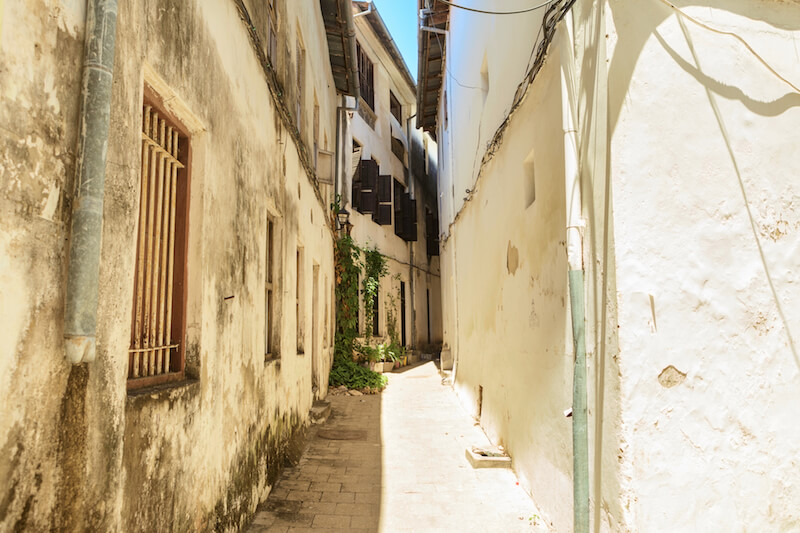
In Uganda I chased mountain gorillas and discovered to my dismay that they climb straight up and down hills, as I would have to do in order to track them; we camped one night and so skilled was I that I set up my sleeping pad on an incline - and woke up with my feet soaked in the rising river.
To make this trip even more interesting, an evil scientist (I kid you not, all true!) abandoned me in the wilderness with a loaded rifle as my sole defense – not that I would have known how to use it.
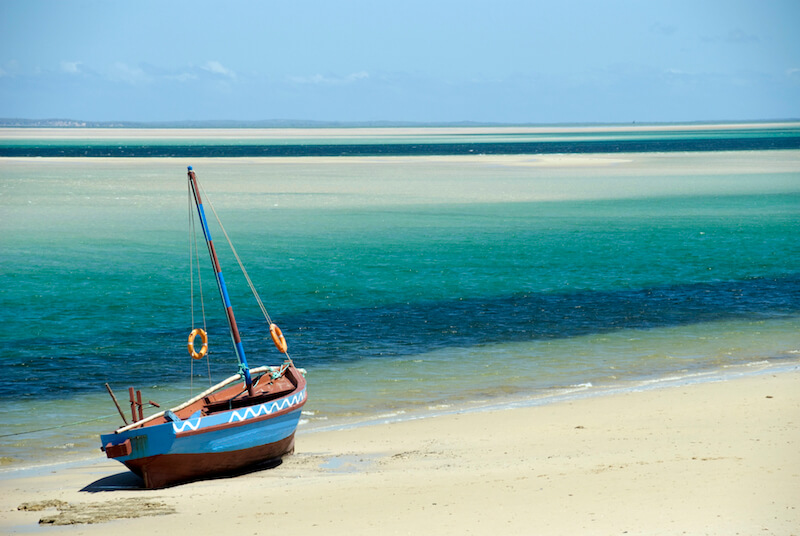

In Ethiopia I marveled at the architecture and ached at the altitude but as a coffee addict I was in paradise.
With the country then briefly at peace with Eritrea (it has been on and off ever since), I could cross the border overland in an antique yellow school bus discarded by the US. The driver was stoned, we hit a hailstorm, and he screamed his prayers stridently all the way across the mountains. So did I.
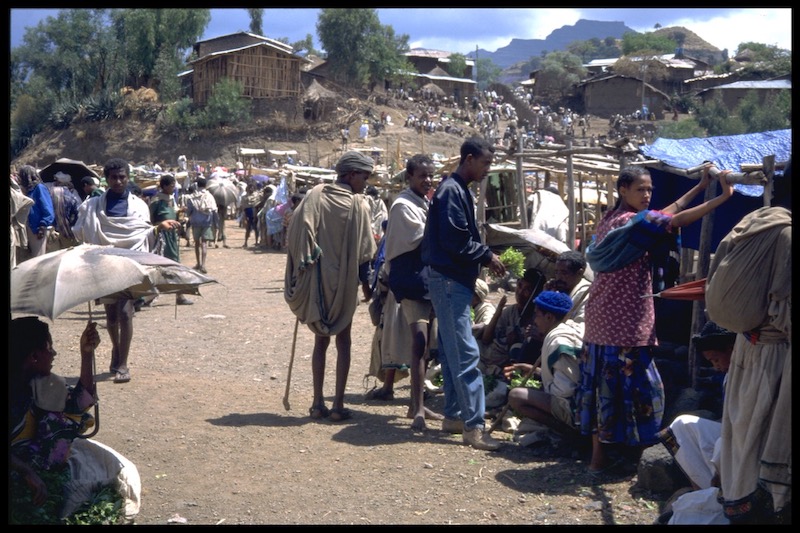
On the Eritrean coast, I observed first-hand the behavior of Saudi men, who left their women and teetotaling state behind to cross the Red Sea to Massawa, its free-flowing whisky and its sex workers.
And it all came to a jarring halt in Sudan.
There was a war, the border was closed, and no amount of begging would get me through. By then I’d been on the road a year but had barely felt the time fly. Cape to Cairo would have to wait, and I’d have to be satisfied with Cape to Asmara.
I stayed in Eritrea, wondering where to go.
Goodbye, Africa
But it wasn’t time to go home yet. So I went to Asia.
For the next two years, I would write about sex change operations in Thailand and unexploded ordnance in northern Laos, watching the sun dip at night over the Mekong. I was smuggled into Banda Aceh at the height of the separatist troubles in Sumatra. I got caught in an attempted coup in Manila and a few weeks later, on a mountaintop, I managed to escape a flood in a canoe (I was accompanied by the local priest and that may have helped). Travel is such fun.
In Bali I crossed the island in an unexpected ministerial motorcade (a rare glimpse of the high life) for which I was embarrassingly underdressed and in Myanmar I dodged the authorities for weeks as I tried to gather information from dissidents for a long piece I’d been assigned. The hot air balloons over Bagan were still well in the future.
I crossed the border from Thailand into Cambodia with a returning convoy of child beggars who had been trafficked. I got lost often in Shanghai, the craziest city in the world. I ate my way through Hong Kong, and fought to stay solvent in Tokyo and Osaka, where one piece of fruit could cost more than my monthly salary. I tried to get to Afghanistan but my editor wouldn’t let me go.
By now I’d been gone well over two years and couldn’t remember living any other way. Forward movement was my stability, and the journey itself became my endpoint.
In a second-hand bookstore, I picked up a Lonely Planet Baltic States. I had little knowledge of these countries so off I went, via Vienna, landing in Vilnius on a snowy winter day – again in a T-shirt, cementing my strange relationship with the weather.
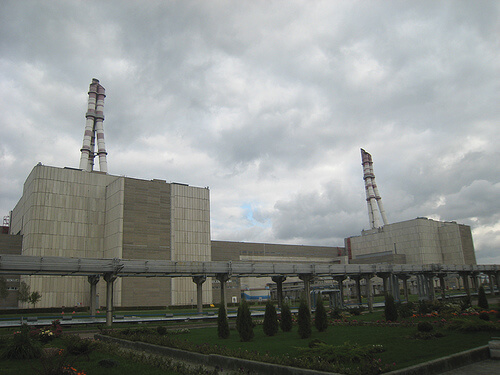
I visited old nuclear reactors, rode on Soviet-era trains, ate grisly sausages and watched with wonder how these recently dour and dingy countries were morphing before my eyes into modern, hip cultures.
And then the opportunity arose to go to Cuba, so I jumped.
As the bearer of a Canadian passport, this was not a difficult thing, although as a journalist I did need a bit more paperwork than the average tourist.
I was treated like a queen and was granted every interview I requested (including with dissidents, although these were obviously being recorded). I caught Cuba in full Fidel, but things have changed so much I wouldn’t recognize it today.

I might well have faced a lifetime of travel had my brother, recently married (I missed the wedding because I was stuck in the mountains of Java at the time) not become a father. Desperate to meet my niece, I rushed back to Geneva in time for the birth.
I had only planned to stay a few days but complications turned me into a terrified foster parent for the first week as mother and child were separated by an unwelcome bout of measles. As I bonded with that amazing little baby, I found it difficult to leave.
So I hung around, taking up space at my brother’s home, and trying to figure out how to sustain my expensive European coffee habit on a developing country income.

A friend from Laos was in town and offered me some writing work. Then another friend offered me a job for two weeks. And so on. And I stayed.
I had gone away nearly four years earlier, and now I was back, a bit confused by my newfound sedentary status.
Full circle
I never thought I’d be gone that long.
It just happened.
Doors opened, and I allowed myself to walk through them.
Today, decades later, I live in rural France, about an hour from the Swiss border. I retired a few years ago from the United Nations and now write full-time.
When I first returned to Europe I wanted to write a book about my travels but I put it off for so long it didn’t make much sense anymore – and that’s why I started this website: to encourage women over 50 to travel the world and not give up their dreams just because they can’t find a travel partner.
This is where I can share the joys and challenges of being truly alone in places I had never heard of until I got there.
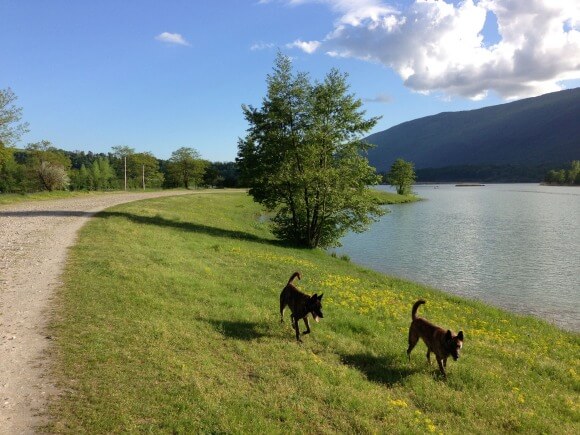
I still have itchy feet.
That trip was my longest but I’ve been escaping my life to travel ever since I first ran away to Morocco at 15 (it wasn’t far – we were living in Spain at the time).
Today, I help other women travel, especially women closer to my age, or women who might be apprehensive or just curious about traveling the world on their own.
My travel has changed over the years as well. I go out of my way to travel locally, to diminish my footprint, and to make sure the money I spend is returned to the community.
I wrote this piece because readers often ask me how I managed to stay on the road all those years. My answer is, I didn’t manage it at all… I just let it happen, and went along for the ride.
I tried to say Yes more often than I said No. I was wracked by self-doubt at times and repeatedly questioned my own sanity, but I kept putting one foot in front of the other, fueled by that inescapable wanderlust, that irresistible pull toward the unknown.
That feeling is what got me on the road, and kept me there.
— Updated 20 March 2023, originally published on 11 September 2011
